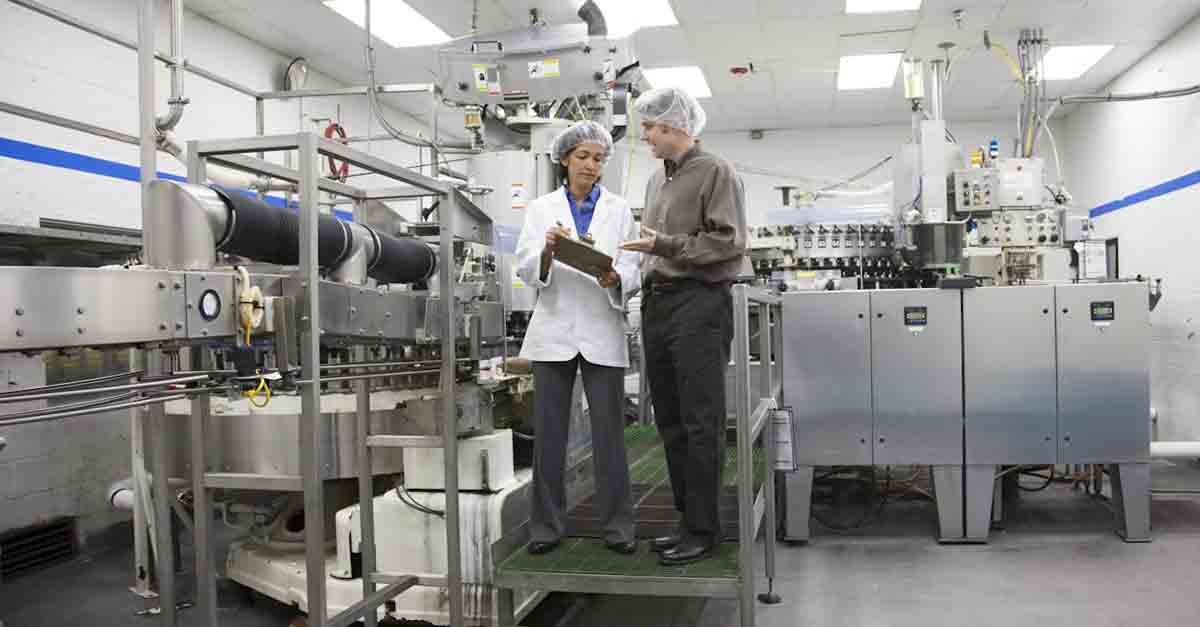
Capital Lease Accounting 101
Learn about capital lease accounting including key differences from operating leases, impact on balance sheets, and compliance with accounting ...
Solutions
Resources
Browse our full library of resources all in one place, including webinars, whitepapers, podcast episodes, and more.
Support
Looking for access to technical support, best practices, helpful videos, or training tools? You’ve come to the right place.
About Accruent
Get the latest information on Accruent, our solutions, events, and the company at large.

Discover essential insights and best practices in facility management for seamless operations, cost savings, and ongoing satisfaction.
Facility management is the strategic and operational management of an organisation's physical assets and infrastructure. It encompasses a wide range of activities and functions aimed at ensuring the efficient and effective functioning of a facility or building. The goal of facility management is to create a safe, comfortable, and productive environment for the occupants while optimising the use of resources and minimising costs. Facility management can be simplified using facility management software.
Effective facility management is crucial for organisations of all sizes, as it helps optimise operational efficiency, reduce costs, enhance occupant satisfaction, and maintain regulatory compliance. Facility management plays a pivotal role in creating a well-maintained, functional, and safe environment for occupants and visitors through:
Maintenance and Repairs: Regular upkeep, preventive maintenance, and addressing repairs keeps facilities in optimal condition. This includes managing mechanical, electrical, plumbing, and other systems.
Space Planning and Allocation: Designing and organising interior spaces maximises their utilisation, considering factors such as employee workflow, safety, and comfort.
Security and Safety: This involves implementing measures to ensure the security of the facility and its occupants, including access control, surveillance systems, emergency response planning, and compliance with safety regulations.
Energy Management: Energy management consists of monitoring and controlling energy consumption to reduce costs and environmental impact. This involves optimising heating, cooling, lighting, and other energy-related systems.
Environmental Sustainability: Implementing practices that promote sustainability and reduce the facility's carbon footprint, such as waste management, recycling programs, and energy-efficient technologies is an integral part of a smart facility management strategy.
Vendor and Supplier Management: This encompasses overseeing relationships with external service providers, contractors, and suppliers who contribute to the maintenance and operation of the facility.
Budgeting and Financial Management: Planning and managing budgets for facility-related expenses, including maintenance, renovations, and upgrades helps simplify the management process.
Real Estate Management: Facility management software can help with handling property leases, acquisitions, disposals, and negotiations.
Emergency Preparedness: This consists of developing and implementing plans for various emergency scenarios, such as natural disasters, fire, or other crises, to ensure the safety of occupants.
Technology Integration: Utilising technology solutions like computerized maintenance management systems (CMMS), building automation systems (BAS), and other software allows businesses to streamline facility management processes.
Health and Wellness: This includes designing facilities to promote employee well-being and productivity, which can include features like ergonomic furniture, natural lighting, and indoor air quality control.
Maintenance Connection is a CMMS (Computerised Maintenance Management System) and EAM (Enterprise Asset Management) software that can significantly assist with various aspects of facility management by streamlining and optimising maintenance and operational processes. Our top-rated programme provides a centralised platform for managing maintenance processes, ensuring regulatory compliance, and making data-driven decisions for better facility performance. This approach to facility management can minimise downtime, extend equipment lifespan, and enhance overall facility performance.
Facility management is a versatile discipline that can benefit a wide range of industries. Any industry that relies on physical facilities, buildings, equipment, and infrastructure can gain significant advantages from effective facility management practises. Here are some examples of industries that can benefit from facility management:
Commercial Real Estate: Facility management is crucial for property owners and managers of commercial office spaces, retail centres, and other commercial properties. It ensures that buildings are well-maintained, secure, and provide a comfortable environment for tenants and visitors.
Healthcare: Healthcare facilities, including hospitals, clinics, and medical centres, require efficient facility management to maintain a sterile and safe environment, ensure medical equipment is functional, and manage patient care spaces effectively.
Manufacturing: Manufacturing plants rely on well-maintained equipment and machinery to operate efficiently. Facility management helps ensure that production processes are not disrupted due to equipment failures or maintenance issues.
Education: Schools, colleges, and universities require facility management to maintain classrooms, laboratories, dormitories, and recreational areas, ensuring a conducive learning environment for students and staff.
Hospitality and Tourism: Hotels, resorts, and entertainment facilities benefit from facility management to provide guests with a comfortable and pleasant experience. Proper maintenance of rooms, amenities, and common areas is essential for customer satisfaction.
Retail: Retail businesses, including stores and shopping centres, rely on well-maintained facilities to attract customers and create a positive shopping experience.
Government and Public Institutions: Government offices, public buildings, and institutions need efficient facility management to provide services to citizens and maintain essential infrastructure
Data Centers and IT Facilities: Data centres and IT facilities require precise temperature control, redundancy, and maintenance of critical infrastructure to ensure uninterrupted operations.
Energy and Utilities: Facility management is crucial for energy production plants, water treatment facilities, and utility providers to maintain infrastructure and prevent service disruptions.
Transportation and Logistics: Airports, seaports, train stations, and logistics hubs rely on efficient facility management to ensure smooth operations, passenger safety, and cargo handling.
Pharmaceuticals and Laboratories: Laboratories and pharmaceutical manufacturing facilities require specialised facility management to ensure compliance with stringent regulations, proper storage of materials, and safe working conditions.
Sports and Entertainment: Sports stadiums, arenas, and entertainment venues need facility management to maintain facilities, seating, lighting, and audiovisual equipment for events and performances.
Residential Real Estate: Property management companies and landlords use facility management to maintain rental properties and ensure tenant satisfaction.
Banking and Finance: Financial institutions require facility management to maintain secure and operational branches, data centres, and administrative offices
Agriculture and Food Processing: Agricultural facilities and food processing plants need facility management to maintain equipment, storage, and processing areas to ensure the quality and safety of products.
These are just a few examples, as the concept of facility management can be applied to various industries. Effective facility management enhances operational efficiency, reduces costs, ensures regulatory compliance, and contributes to a safe and productive environment for employees, customers, and stakeholders in any industry that relies on physical facilities.
Ineffective facility management can have far-reaching consequences for a business. It can lead to the shortening of asset life, causing frequent breakdowns and higher repair costs. Such disruptions can result in increased downtime, impacting productivity and revenue generation. Additionally, poor maintenance and uncomfortable facilities can lower employee morale and job satisfaction, potentially leading to higher turnover rates.
Non-compliance with safety regulations and inadequate safety measures can result in accidents, injuries, legal liabilities, and fines. Moreover, inefficient energy usage, reactive repairs, and neglected maintenance can escalate operational costs, including utility bills and maintenance expenses. This financial strain can affect resource allocation and hamper growth opportunities.
Furthermore, poorly maintained facilities can tarnish a business's brand image, potentially alienating clients, customers, and partners. In industries like retail and hospitality, this can lead to dissatisfaction among customers and tenants, resulting in reduced repeat business and referrals.
In the long run, ineffective facility management can translate into missed competitive advantages, unproductive workflows, inefficient space utilisation, difficulty in decision-making, and even jeopardise business continuity during emergencies or crises. Consequently, addressing facility management issues and adopting best practises are crucial to ensuring a business's efficiency, reputation, and financial well-being.
Using facility management software offers numerous benefits that streamline operations, enhance efficiency, and improve overall facility performance. It will help you in organising maintenance tasks, managing assets, and optimising resource allocation. By providing a centralised platform for data management and analysis, facility management software enables informed decision-making, ensures compliance with regulations, and contributes to a safe and productive environment for occupants and stakeholders. Ultimately, facility management software is an indispensable tool for modern businesses to effectively manage their physical assets, enhance occupant satisfaction, and achieve sustainable success.
Get started improving your facility management with Maintenance Connection. Watch a quick demo video, start a free trial or contact us today.
You might also like
Learn about capital lease accounting including key differences from operating leases, impact on balance sheets, and compliance with accounting ...
Is your organisation looking to introduce a hybrid work model that involves some combination of in-office and remote work? Discover how hot desking ...
Maintaining equipment, fleets, and machinery is a necessary but time and resource-intensive process. Viewing decentralised assets and understanding ...
Subscribe to stay up to date with our latest news, resources and best practices